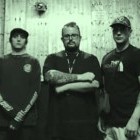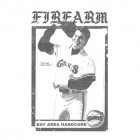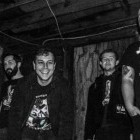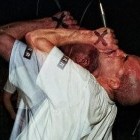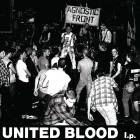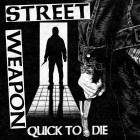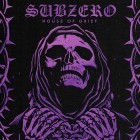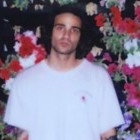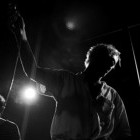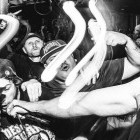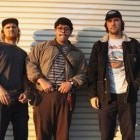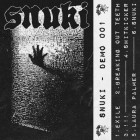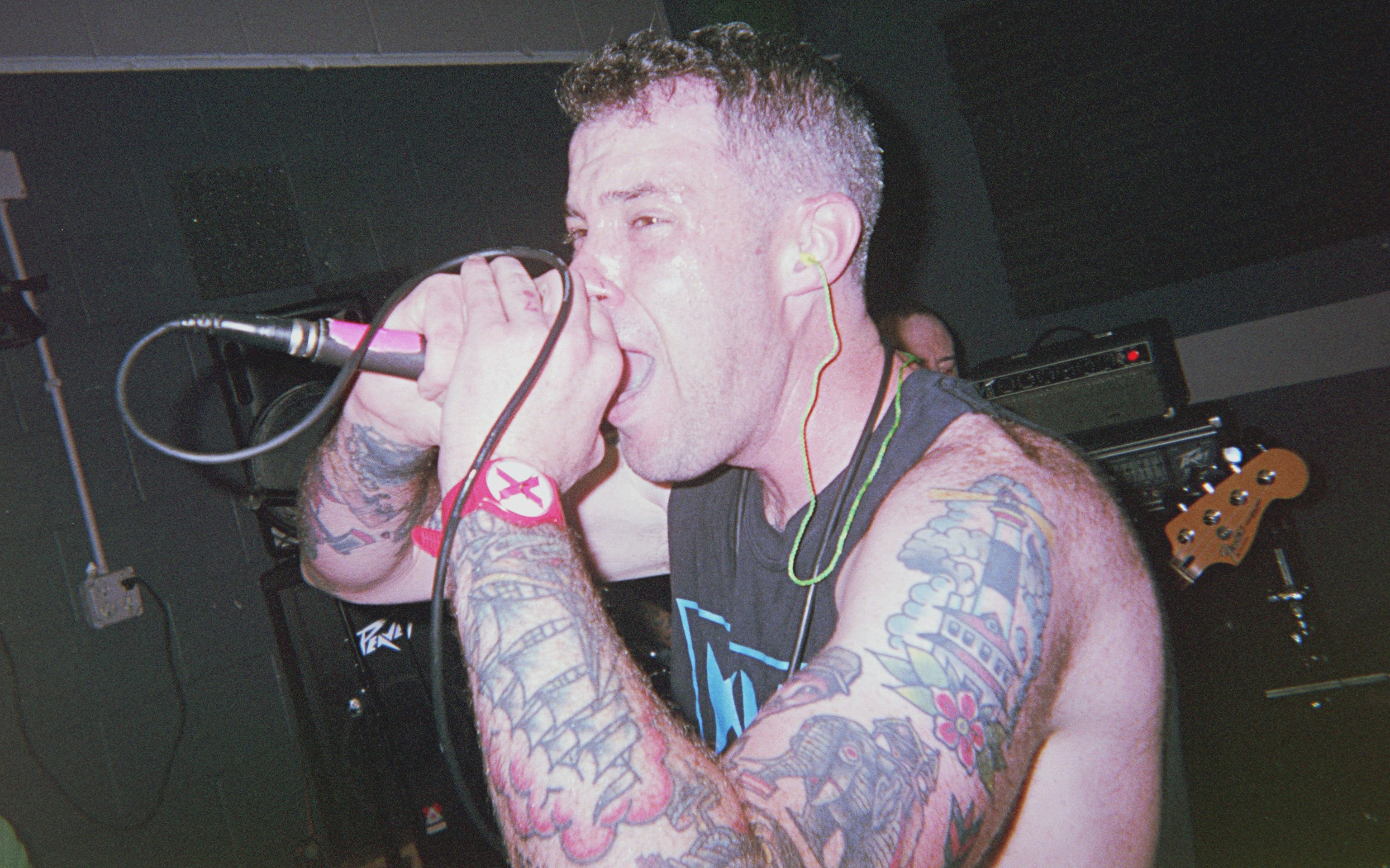
If you've heard or read about Sunstroke yet haven't actually listened to them yet, I'd bet my week's salary that the words "Revolution Summer" were used. Heck, it's even happened on this very website in recent months. Look, it makes sense. Sunstroke certaintly bring to mind that music and spirit of that time period, but the Philadelphia-based group's sonic palette has many more colors to it.
"While there is a very heavy and obvious influence from the Revolution Summer-era bands, and we totally wear that on our sleeves, a lot of our influences come from a step outside of the world of hardcore," Sunstroke vocalist Sean Farlow tells me. "A huge amount comes from Bob Moulds' guitar playing on the mid-'80s Hüsker Dü records, and also a lot from bands like Ride, Oasis, Swervedriver, and Sisters of Mercy."
When I tell Sean that I hear a certain melancholy to the material on Sunstroke's debut LP, Second Floor/Seven, he doesn't disagree with my assessment. "I think there’s absolutely times of sadness and moodiness on this record. Some of those songs are written about and were recorded in a time of frustration and uncertainty, and the hope is that these songs project with the honesty that was felt in writing and recording them."
Take a listen to Second Floor/Seven below and maybe you'll also hear what I mean:
Since I've been playing the advance copy of their album so much lately, I asked Sean about his lyrics. The words on Second Floor/Seven are just as important as the music it's being delivered over. "I’ve always felt that if you’re going to be screaming into a microphone that whatever you’re saying should have some weight to it. Whether that’s personal, political, or societal. I write about things that are important to me.
"The song 'Richard Spencer' is less about Richard Spencer directly and more so a response to the question: 'Is it ok to punch a Nazi?' And if you needed clarification, yes it is!"
"'Procedure 203-11' is directly related to the death of Eric Garner. I wanted to keep that song simple, because of how cut and dry and fucked up that situation was. An officer of the law used a chokehold that had been outlawed for 20 years to end someone’s life for a petty crime. 'The Threat of Nostalgia' was written mainly because of the 'MAGA' slogan and how there was this mentality that the best this county could ever be is how it was 50+ years ago. There’s a serious anti-progression thought process that I felt was important to address there. I think 'saying something' is extremely important to hardcore, not just Sunstroke. Music, especially hardcore and punk, can be a vehicle for change, personal growth as well as social/political. I’ve always felt that hardcore is at its best when that is apparent."
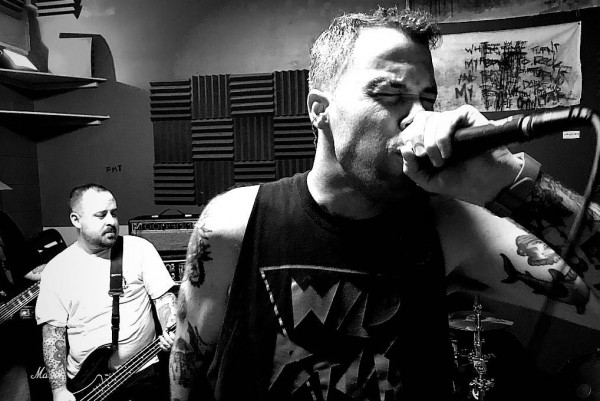
Looking at today’s hardcore landscape, who would Sean consider some of Sunstroke’s musical contemporaries? "Sonically, I think we share similarities to bands like Praise, Give, and Coming Down. I think there’s a few newer more melodic bands worth mentioning that I really love, like: Anxious, Moonkisser, Search for Purpose, Out of Body, Full Color Dream, and One Step Closer."
Second Floor/Seven is out now as a co-release via CoinTossRecords and New Morality Zine. Follow Sunstroke on Instagram and if you're in the Philadelphia area, the band will performing a record release show on Oct. 14 along with The Dividing Line, Anxious, One Step Closer, Tantrum, and Josh Alvarez.
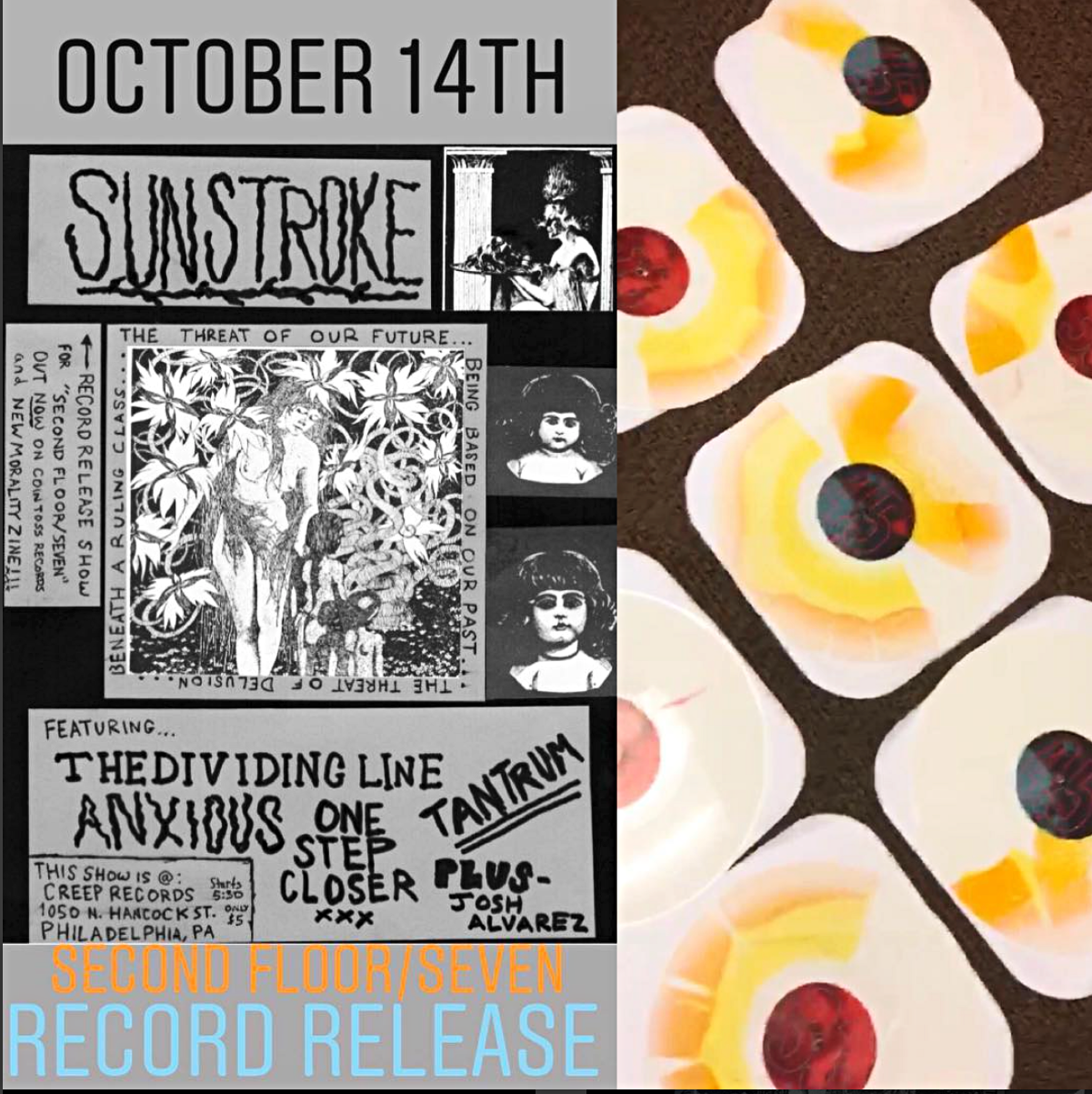
Tagged: sunstroke


